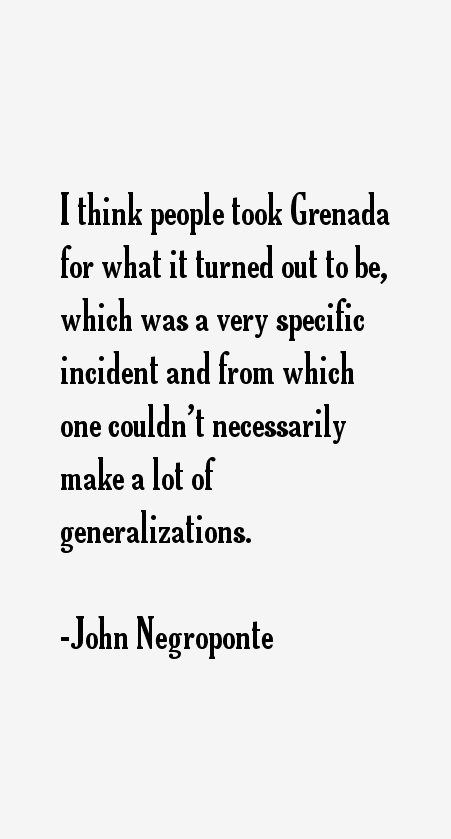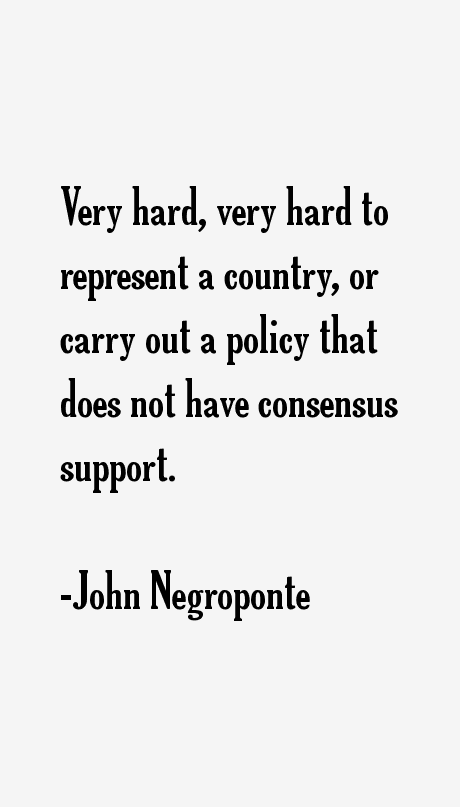John Negroponte Quotes & Sayings
12 most famous John Negroponte quotes and sayings (diplomat). These are the first 10 quotes we have.
“I think there, there also had been just before I got to Honduras a rather spectacular capture of an arms shipment that from Nicaragua across Honduran test, territory destined for El Salvador and I think that some of that equipment had been also to Cuba and the Soviet bloc.”
“It seems to be that when these communist regimes take over - if you look at the example of Vietnam or Cambodia or Nicaragua - that even in conditions of peace they don't seem to be able to figure out how to support their people, and the human suffering is enormous.”
“There was the situation in Nicaragua where the Sandinistas had taken over a couple of years earlier. There was a civil war going on in El Salvador and there was a similar situation in Guatemala. So Honduras was in a rather precarious geographic position indeed.”
“Well my briefing was that Honduras was a small and vulnerable country just back on the path towards democracy it was about to have just before I arrived, the first elections for a civilian president in more than 9 years.”

“I think people took Grenada for what it turned out to be, which was a very specific incident and from which one couldn't necessarily make a lot of generalizations.”
“The populations of Central America are very, very small indeed, so that while no one was denying and this was one of the great debates we used to have, whose fault was it that there were communists were able to do so well down there, well, that wasn't the point.”

“We believe that the vote would have been close. We regret that in the face of an explicit threat to veto by a permanent member, the vote-counting became a secondary consideration.”
“We negotiated with the Honduran government the establishment of a regional military training center, for training central American forces, but the primary motivation for doing that was to be able to bolster the quality, improve the quality of the El Salvadoran fighting forces.”

“To the contrary, I think we bent over backwards to press for elections and for democratic reform.”

“Very hard, very hard to represent a country, or carry out a policy that does not have consensus support.”
John Negroponte Quotes Rating
No Ratings Yet
Leave A Comment
























